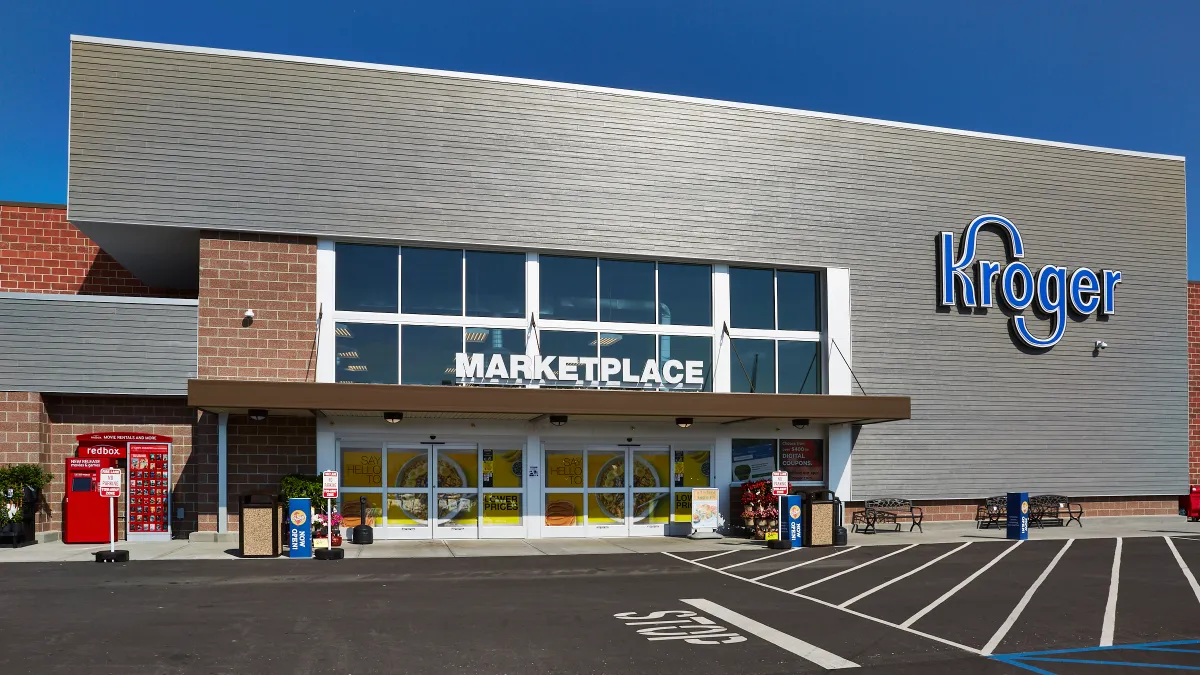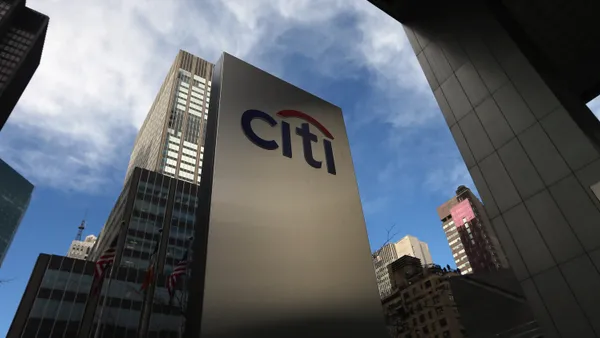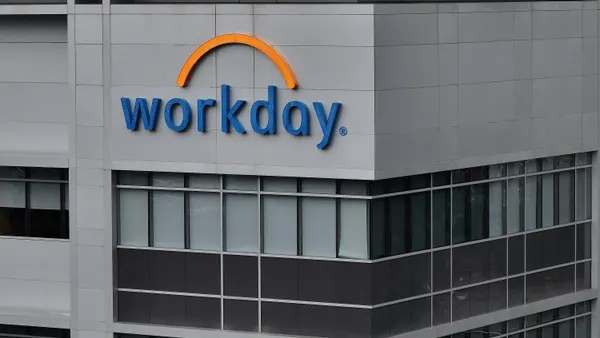Dive Brief:
- A former Kroger employee has alleged in a lawsuit that she was fired for self-isolating with a potential COVID-19 infection, in violation of federal law (Robtoy v. The Kroger Co., dba Peyton’s Northern Distribution Center, No 1:20-cv-00173 (N.D. Ind., April 28, 2020).
- After she developed various signs of a COVID-19 infection, Ariel Robtoy provided Kroger a doctor's note explaining that while she most likely had an upper respiratory infection, she should self-isolate for 14 days to prevent potential spread of COVID-19. Robtoy's live-in boyfriend, who also worked for Kroger, provided a doctor’s note indicating he should self-isolate for possible exposure to COVID-19. Robtoy allegedly was fired for missing work; her boyfriend used vacation time to cover his absence.
- Robtoy sued, alleging Kroger failed to comply with the Families First Coronavirus Act (FFCRA) and the Family and Medical Leave Act (FMLA). Kroger did not respond to a request for comment.
Dive Insight:
The FFCRA took effect on April 1 and requires businesses with fewer than 500 workers to provide up 80 hours of paid sick leave to an employee who can’t work because of COVID-19, including related quarantines.
Robtoy alleged in her lawsuit that the FFCRA applied even though Kroger has more than 500 employees because "it represented to its employees that they were entitled to the same protections as afforded by the FFCRA." The employer changed its emergency leave guidelines in March to cover COVID-19-related self-isolation and symptoms, allowing employees up to 14 paid days off, she said. The company also amended its attendance policy so that absences related to COVID-19 would be excused with medical documentation, the suit alleged. It remains to be seen, of course, whether Robtoy sees success with her claims.
Employers may want to note that, in addition to the FFCRA, some state and local governments have their own requirements. An executive order signed by California's governor April 16, for example, gives certain grocery store, fast food and farm workers, as well as delivery drivers two weeks of supplemental paid sick leave related to COVID-19. The order applies to employers with more than 500 employees.
Likewise, San Francisco’s mayor signed a public health emergency ordinance April 17 requiring that large employers located in the city provide an additional two weeks of paid leave to employees who are sick, unable to work because of a shelter-in-place order or have a compromised immune system. The mayor of Los Angeles also signed an emergency order April 7 granting paid leave to certain employees.
And while the FMLA provides job protection for workers with illness that meet the law's definition of "serious health condition," DOL has asked employers to devise flexible leave policies to allow workers to comply with instructions to self-isolate.














